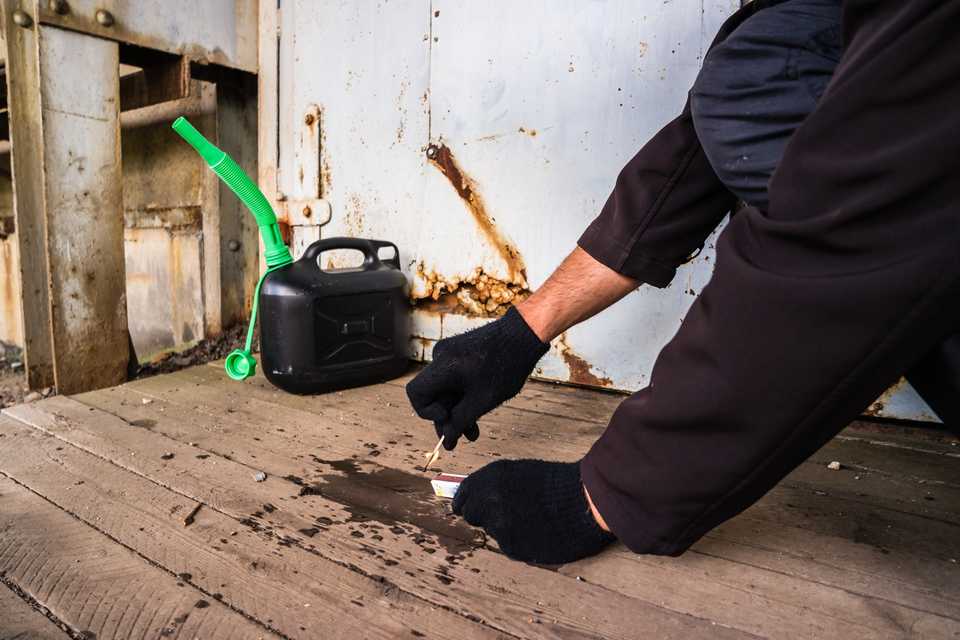Arson is a serious offense in Canadian criminal law, which refers to the intentional act of setting fire to real estate or personal property, thereby endangering people's lives or causing significant material damage.
If you are accused of arson, it is essential to understand the legal implications, the constituent elements of the crime, the penalties incurred, and the defense means available to protect your rights and your freedom.

This article aims to provide you with a detailed analysis of the key aspects related to the arson charge in Canada, including the constituent elements of the offense, the penalties associated with it, and the means of defense to counter such a charge.
What is arson?
Arson is governed by articles 433 to 436 of the Criminal Code. First, article 433, which provides for arson causing a danger to human life, defines arson as follows:
" 433 Any person who, intentionally or without regard for the consequences of their act, causes damage by fire or explosion to property, whether or not they own it, is guilty of a criminal act and liable to life imprisonment in the following cases:
a) they know that it is inhabited or occupied, or do not care about it;
b) the fire or explosion causes bodily harm to another person."
This provision of the Criminal Code therefore indicates that arson encompasses two essential elements:
- The intentional act of setting fire to real or personal property;
- Endangering human life or causing significant material damage.
The law also provides, in the following articles, other types of arson, namely:
- Arson causing property damage: This type of arson targets properties that do not entirely belong to the accused. It is a criminal act punishable by a maximum imprisonment of 14 years.
- Arson for own property: This arson targets own properties, that is, those that belong to the accused. It is also punishable by a maximum imprisonment of 14 years.

- Arson with fraudulent intent: Arson accompanied by an intent to defraud another person is either a criminal act punishable by 10 years imprisonment, or an offense punishable on summary conviction.
- Negligent arson: A person who significantly deviates from the behavior of a reasonable and prudent person and causes a fire through negligence can be found guilty of a criminal act punishable by a maximum of 5 years imprisonment, or an offense punishable on summary conviction.
What are the elements of the arson offense?
In order for an individual to be found guilty of arson, the Crown (the Public Prosecution Service) must prove beyond any reasonable doubt the following elements:
- Intentional act of setting fire (mens rea): The prosecution must demonstrate that the accused deliberately caused the fire. This means that the fire was started deliberately and not by accident, therefore intentionally or without caring about the consequences of his act.

- Endangering human life or significant property damage (actus reus) : The charge of arson also requires demonstration that human life was endangered or that significant property damage was caused by the fire.
The endangerment can be physical or result from a high risk to the mental and physical health of the affected individuals. As for property damage, the fire must cause damage, that is, either property damage or a decrease in the value of the burned property.
What are the penalties for the offense of arson?
The penalties for arson vary depending on certain factors, such as the type of arson, the severity of the crime, and the consequences of the fire. The maximum penalties are determined under the Canadian Criminal Code. Here are the penalties associated with arson.
Arson is considered a serious criminal act, and the penalties can be severe. First, negligent arson is punishable by a maximum imprisonment of 5 years. Arson with fraudulent intent, on the other hand, is an offense punishable by a maximum imprisonment of 10 years.
As for arson causing property damage to others' property, or arson on own property, the maximum prison sentence is 14 years.
Finally, in the most serious cases, that is, when the fire has endangered human life, the court can impose a life imprisonment sentence. Such a sentence can be applied when the accused has set fire to a property knowing that it is inhabited or without caring about it, or when the fire causes bodily harm to others.
Defense Means: How to defend against an arson charge?
If you are accused of arson, it is essential to hire an experienced criminal lawyer to represent you. A competent lawyer can review the details of your case and develop a defense strategy suited to your situation. Here are some potential defenses:
- Absence of intent To be found guilty of arson, the prosecution must prove that you intentionally started the fire. If your lawyer can demonstrate that the fire was accidental or that there was no criminal intent, this could constitute a strong defense.

- Insufficient Evidence Your lawyer can challenge the evidence presented by the Crown, if it is deemed insufficient to establish your guilt beyond a reasonable doubt. This may include contradictory testimonies, unreliable evidence, or gaps in the chain of custody of the evidence.
- Procedural Issues Your lawyer can also review the procedures followed by law enforcement during your arrest and investigation to determine if there have been violations of your constitutional rights. If irregularities are found, this can result in the exclusion of incriminating evidence and weaken the prosecution's position.
JuriGo helps you find a criminal lawyer in just a few clicks!
The charge of arson is a serious matter with potentially devastating consequences. Understanding the elements of the offense, the associated penalties, and possible defenses is essential to protect your rights and freedom.
Hiring the services of an experienced criminal lawyer is the best way to effectively defend your case. A qualified lawyer can represent you in court, challenge evidence, negotiate with the prosecution, and provide the legal advice you need throughout the judicial process.
Moreover, JuriGo can help you find a competent criminal lawyer in just a few clicks!
All you have to do is fill out the request form explaining your situation, and you will be put in contact with a lawyer who matches your criteria. All of this is free and does not commit you to anything, so don't wait!